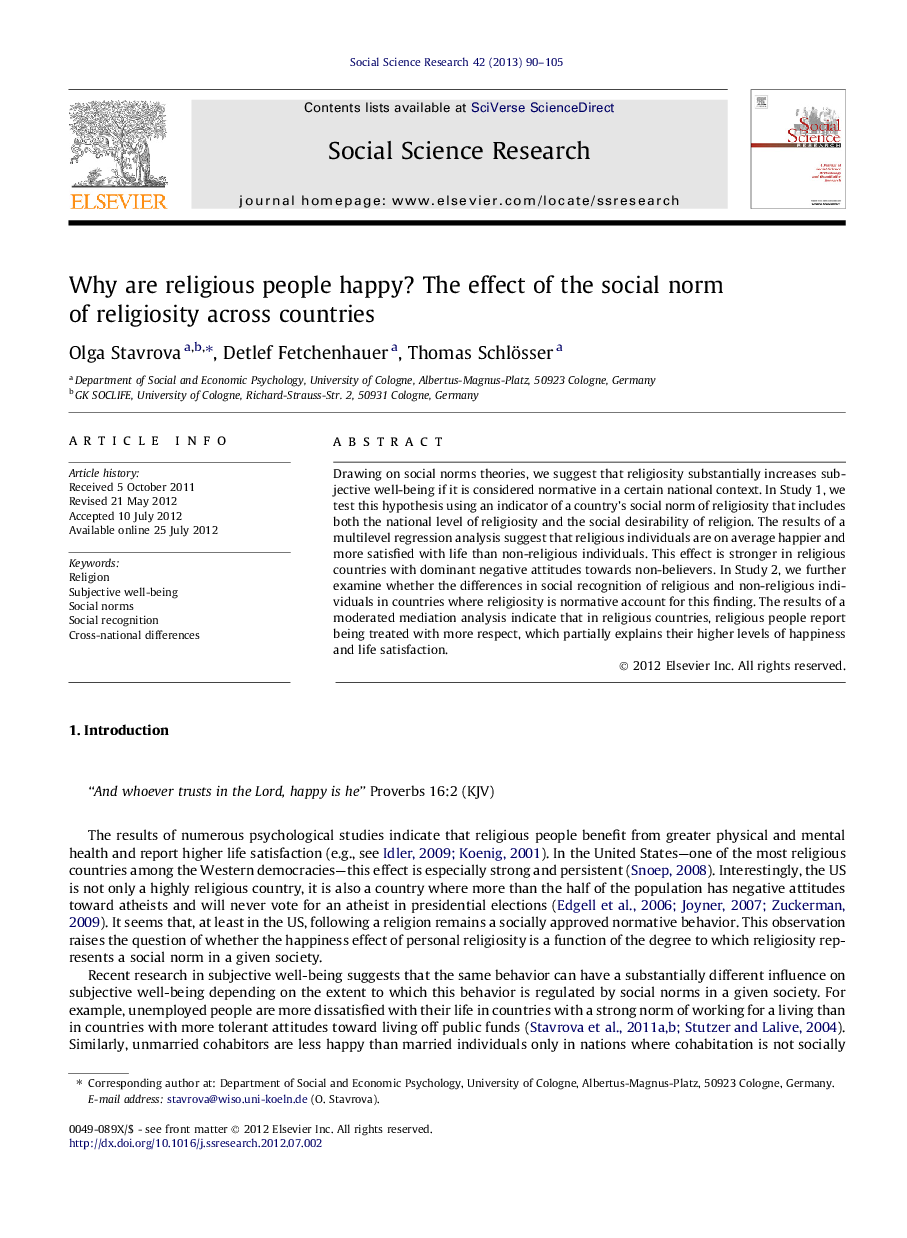| Article ID | Journal | Published Year | Pages | File Type |
|---|---|---|---|---|
| 956029 | Social Science Research | 2013 | 16 Pages |
Drawing on social norms theories, we suggest that religiosity substantially increases subjective well-being if it is considered normative in a certain national context. In Study 1, we test this hypothesis using an indicator of a country’s social norm of religiosity that includes both the national level of religiosity and the social desirability of religion. The results of a multilevel regression analysis suggest that religious individuals are on average happier and more satisfied with life than non-religious individuals. This effect is stronger in religious countries with dominant negative attitudes towards non-believers. In Study 2, we further examine whether the differences in social recognition of religious and non-religious individuals in countries where religiosity is normative account for this finding. The results of a moderated mediation analysis indicate that in religious countries, religious people report being treated with more respect, which partially explains their higher levels of happiness and life satisfaction.
► The well-being effect of religion depends on the religious attitude in a given country. ► It is stronger in countries where religiosity is common and socially desirable. ► In such countries, religious people receive higher levels of social recognition. ► In contrast, non-religious people report being treated unfairly and with less respect. ► In secular countries, such differences are less likely to occur.
